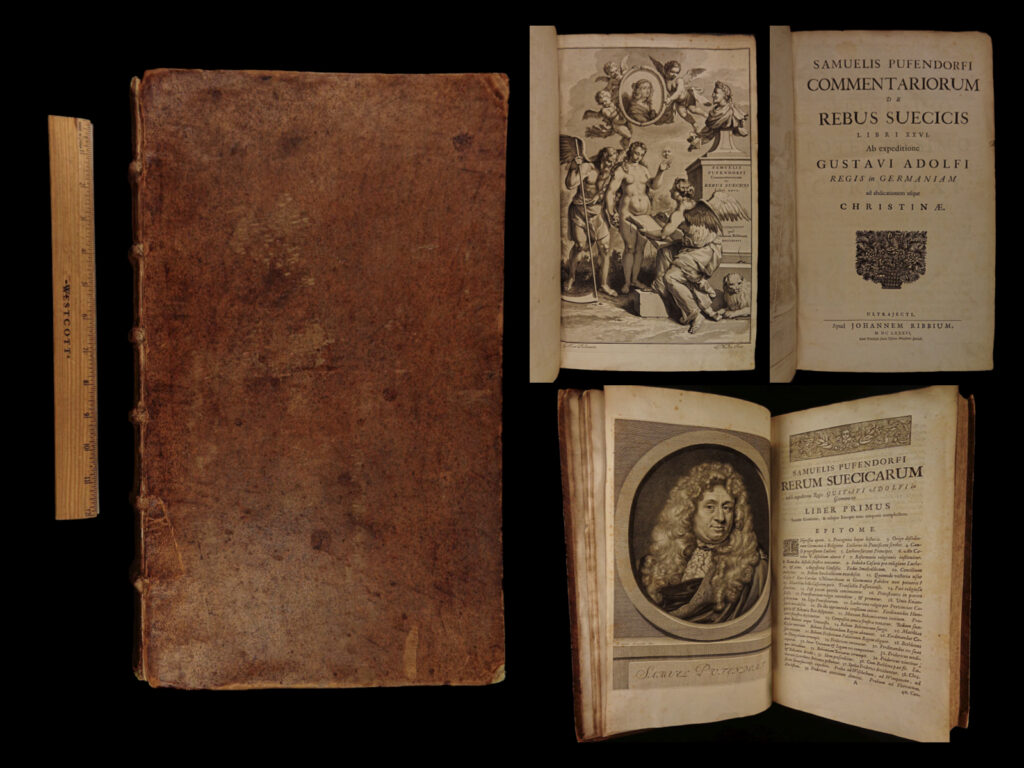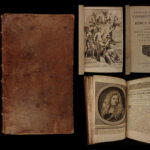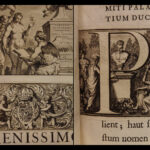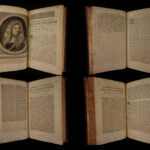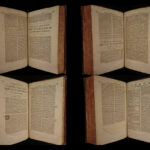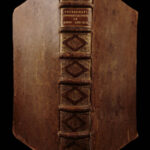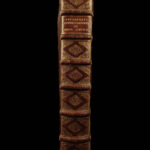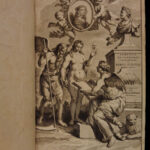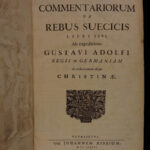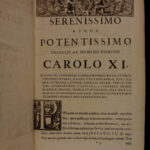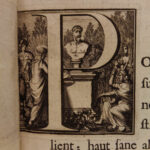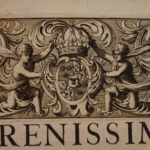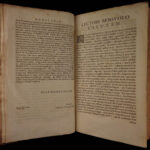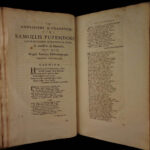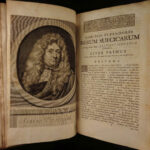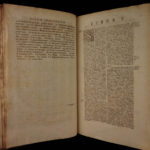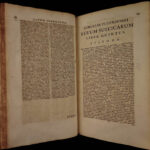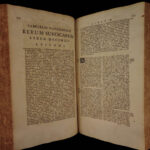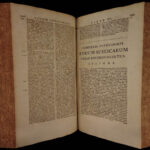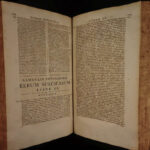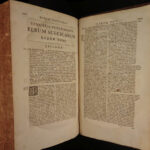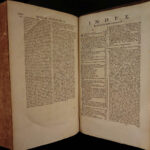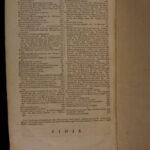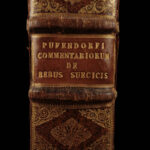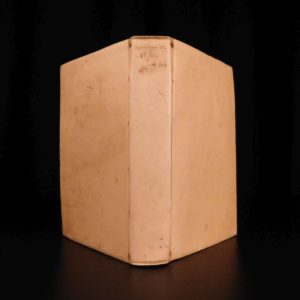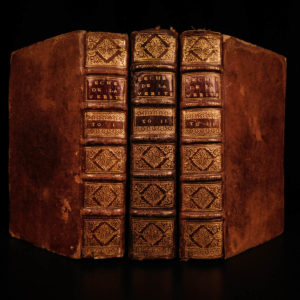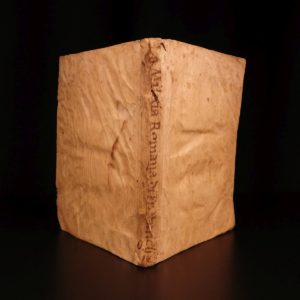1686 1ed Samuel Pufendorf Natural Law HUGE FOLIO Hobbes Grotius Sweden Suecicis
A very rare 1st edition by Samuel Pufendorf, who was among the first men to write on natural law.
Baron Samuel von Pufendorf (1632 – 1694) was a German jurist, political philosopher, economist, statesman, and historian. His name was just Samuel Pufendorf until he was ennobled in 1684; he was made a Freiherr (baron) a few months before his death at age 62 in 1694. Among his achievements are his commentaries and revisions of the natural law theories of Thomas Hobbes and Hugo Grotius.
CLICK THE DESCRIPTION & DETAILS TAB BELOW TO LEARN MORE.
1686 1ed Samuel Pufendorf Natural Law HUGE FOLIO Hobbes Grotius Sweden Suecicis
A very rare 1st edition by Samuel Pufendorf, who was among the first men to write on natural law.
Baron Samuel von Pufendorf (1632 – 1694) was a German jurist, political philosopher, economist, statesman, and historian. His name was just Samuel Pufendorf until he was ennobled in 1684; he was made a Freiherr (baron) a few months before his death at age 62 in 1694. Among his achievements are his commentaries and revisions of the natural law theories of Thomas Hobbes and Hugo Grotius.
Main author: Samuel Pufendorf,
Title: Commentariorum de rebus Suecicis libri XXVI. ab expeditione Gustavi Adolfi regis in Germaniam ad abdicationem usque Christinae.
Published: Ultrajecti: apud Johannem Ribbium, 1686.
Language: Latin
Notes & contents:
- 1st edition
- Folio printing
- Collated: [16], 1044(i.e. 1064), [24]
- Copper engraved title page
- Engraved portrait of author
- Provenance: Library of the Dukes of Devonshire, in Chatswroth
- Bibliographical reference:
- Collinjn, 742.
FREE SHIPPING WORLDWIDE
Wear: wear as seen in photos
Binding: tight and secure leather binding
Pages: complete with all 1,044 pages; plus indexes, prefaces, and such
Publisher: Ultrajecti: apud Johannem Ribbium, 1686.
Size: ~16in X 10in (41cm x 25cm)
FREE SHIPPING WORLDWIDE
Shipping:
Very Fast. Very Safe. Free Shipping Worldwide.
Satisfaction Guarantee:
Customer satisfaction is our priority. Notify us within 7 days of receiving your item and we will offer a full refund guarantee without reservation.
$950
Categories
Law & Government
Philosophy
Authors
Samuel Pufendorf
Printing Date
17th Century
Language
Latin
Binding
Leather
Book Condition
Excellent
Collation
Complete

